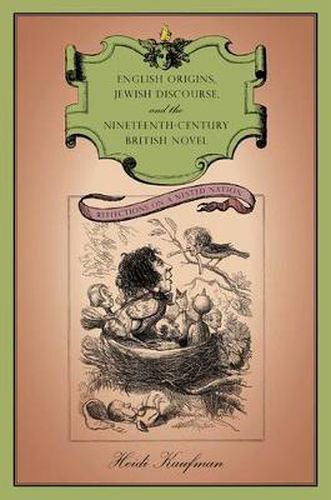Readings Newsletter
Become a Readings Member to make your shopping experience even easier.
Sign in or sign up for free!
You’re not far away from qualifying for FREE standard shipping within Australia
You’ve qualified for FREE standard shipping within Australia
The cart is loading…






‘For we rather forget that the Christian God was a Jew’, Patrick Braybrooke facetiously claimed, ‘though no doubt this was a Divine mistake and the 'nationality’ of Christ should have been English’. Taking Braybrooke’s lead, Heidi Kaufman argues that the proliferation of Jewish discourse in nineteenth-century British novels was linked to the construction of English character and English origins. The period of the eighteenth century marks a turning point in definitions of English national identity, not only because of a rise in modern racial thinking, but also because of the contradictory dimensions of Englishness that called out for resolution in novels. This study looks at some of the ways in which novels of the nineteenth century began to rewrite Jewish and Christian theological affiliations in an effort to allay the racial panic such associations posed for the nation’s newly emergent racial-religious identity. Novels were uniquely well suited to this task because of their emphasis on sequential history and character development, their increasing popularity, and their imaginative possibilities. Kaufman shows that nineteenth-century novels did not simply engender ideas about England and the English but also attempted to correct a problem that arose when the racial and theological components of national identity came into conflict with one another.
$9.00 standard shipping within Australia
FREE standard shipping within Australia for orders over $100.00
Express & International shipping calculated at checkout
‘For we rather forget that the Christian God was a Jew’, Patrick Braybrooke facetiously claimed, ‘though no doubt this was a Divine mistake and the 'nationality’ of Christ should have been English’. Taking Braybrooke’s lead, Heidi Kaufman argues that the proliferation of Jewish discourse in nineteenth-century British novels was linked to the construction of English character and English origins. The period of the eighteenth century marks a turning point in definitions of English national identity, not only because of a rise in modern racial thinking, but also because of the contradictory dimensions of Englishness that called out for resolution in novels. This study looks at some of the ways in which novels of the nineteenth century began to rewrite Jewish and Christian theological affiliations in an effort to allay the racial panic such associations posed for the nation’s newly emergent racial-religious identity. Novels were uniquely well suited to this task because of their emphasis on sequential history and character development, their increasing popularity, and their imaginative possibilities. Kaufman shows that nineteenth-century novels did not simply engender ideas about England and the English but also attempted to correct a problem that arose when the racial and theological components of national identity came into conflict with one another.